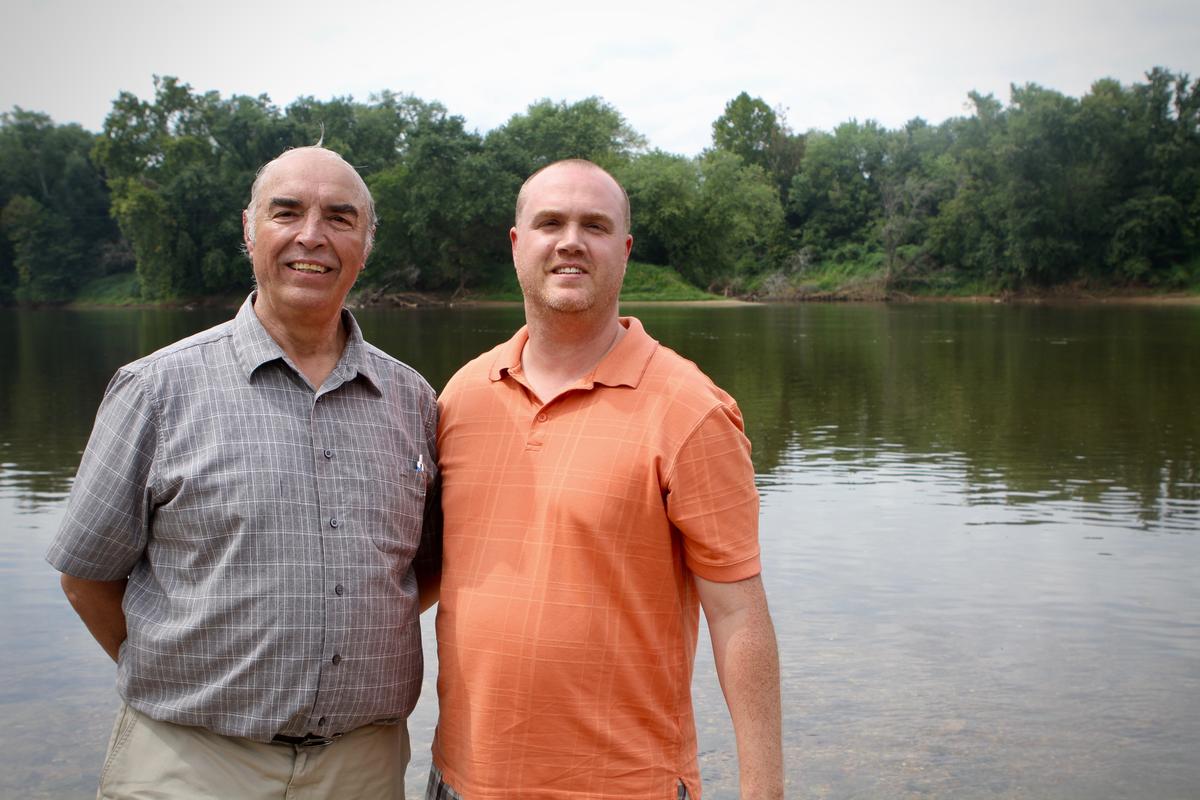In Central Virginia, at a point where two rivers merge, there’s a little-known site with great historical value. For centuries, it was home to the chief village of the Monacan Indian Nation.
But today the Monacan Tribe is fighting to keep the area untouched as officials in Fluvanna and Louisa Counties push to put a water pump there.
On the shore of the James River Monacan Chief Kenneth Branham watches Tribal Administrator Rufus Elliott wade into the shallow water. He opens his hand to reveal something luminescent.
“Little shell pieces,” Elliott explains, touching through them. “Traditionally we made jewelry out of this.”
Just across the river here the land is overgrown with trees and shrubs. And while it may not look that different from any other swath of rural Virginia, it was once a chief capital city of the Monacan Nation. It’s called Rassawek.
Elliott says the site is not only historically important to his people, it’s spiritually important.
“We say all the time that the ground we stand on is made up of the dust and the bones of our ancestors,” he says. “And no place probably more identifies with that than this area right here.”
Chief Branham is confidant he has ancestors buried right over there. One of his greatest fears is that construction on a water pump will unearth their bodies.
“We need to respect what they did and respect their resting place,” says Branham.
But the Monacan Tribe doesn’t own that land and they don’t have any legal claim to it. Fluvanna and Louisa Counties own it, through a joint venture called the James River Water Authority.
Read the entire article at WVTF.
Image: Monacan leaders Kenneth Branham and Rufus Elliott on the banks of the James River near Rassawek. CREDIT MALLORY NOE-PAYNE / RADIO IQ.
